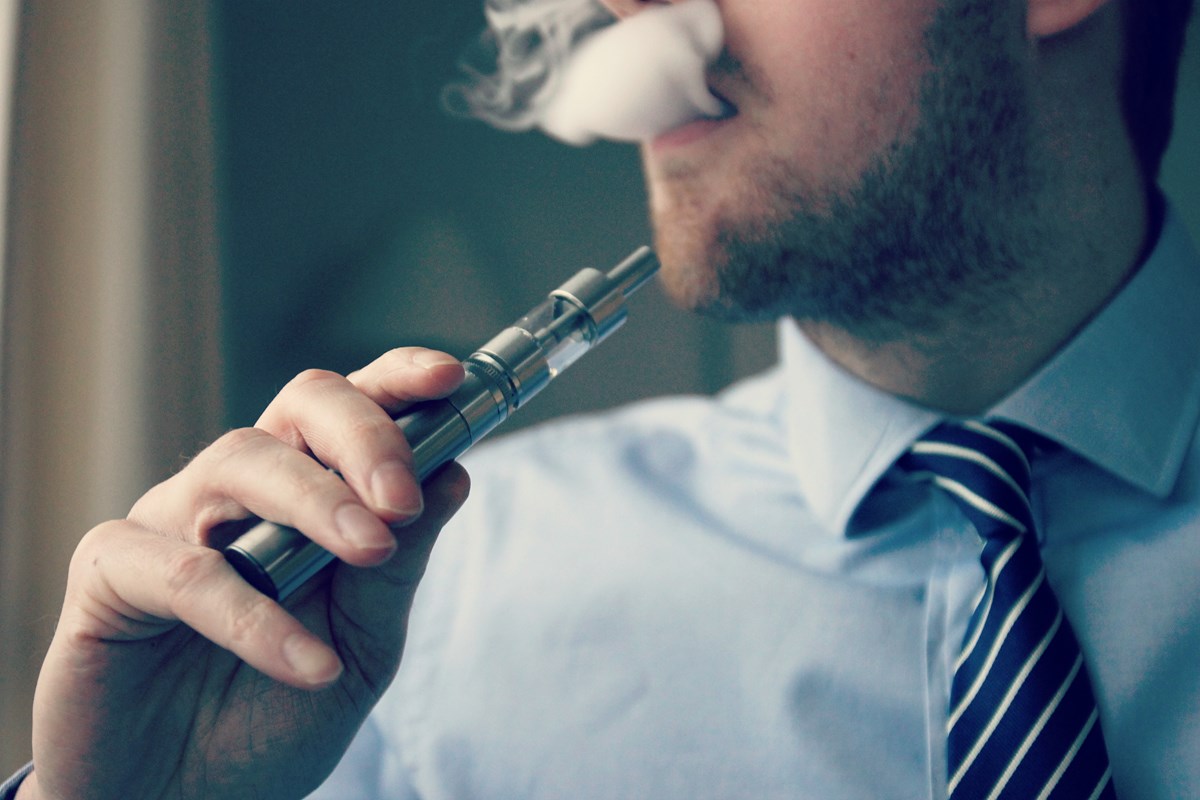August was not a good month for harm reduction advocates striving to save the lives of millions of smokers. Many media outlets have been spreading fear and panic among Americans trying to quit smoking by raising hysteria about a mysterious lung ailment popping up across the United States, claiming it is a deadly side-effect of using e-cigarettes.
Is Vaping Dangerous?
This could not be further from the truth. By all indications, the vapes causing breathing problems are black market devices tainted with impure, illicit substances. If the excessive taxation and government prohibition on cigarettes and marijuana are any guides, restrictions on e-cigarettes will almost certainly backfire and lead to more contamination and disease. Instead of catering to fearmongers, policymakers should ensure a safe, open, and low-cost environment for purchasing harm-reduction products.
Since the end of July, more than 150 people have been hospitalized with a strange constellation of lung-related symptoms, all reportedly after using vaping products. This simple-sounding correlation was seized by “public health” advocates already convinced that e-cigarettes are a societal scourge (despite overwhelming evidence to the contrary). One such group, Parents Against Vaping, called the disease wave “terrifying” and used the tragedy to argue that “our kids should not be guinea pigs for the JUUL experiment!”
This predictably ludicrous response betrays a fundamental lack of understanding about the cases in question. Competitive Enterprise Institute scholar Michelle Minton points out that
While details have not been made public for all of those hospitalized, in every case where a product has been identified, the culprit was not ‘vaping,’ but vaping illicit THC oil.
That’s right: not one identified case thus far stems from an ordinary nicotine-only vaping product. Rather, these cases were caused by users doctoring their vapes or purchasing underground to procure illegal THC (the chemical responsible for marijuana’s effects).
Even if the media points this out, prohibitionists are bound to leap into the fray. Armed with this information, the dwindling number of drug warriors will surely use this evidence to scare Americans about cannabis.
Black Market Products Are Unsafe
But so far, it seems the THC was purchased on the black market. In one of the worst cases yet, a 26-year-old Wisconsin man is in a medically-induced coma after purchasing vaping cartridges containing cannabis oil from a black-market decentralized “brand.” It’s no coincidence that Wisconsin is one of the strictest states in the nation when it comes to cannabis products; decriminalization and medical marijuana proposals are regularly shot down by state lawmakers. In states such as Wisconsin, e-cigarette users wanting to vape with a touch of THC must go through shady brands that are likely contaminated with other illicit substances.
Absent any regulatory oversight or monitoring by stores looking to maintain their pristine brands, black market dealers regularly “cut” their products with unsavory, dangerous substances. Reckless behaviors and sudden, violent illnesses regularly result from marijuana being laced with PCP. Nor is this problem limited to marijuana or cannabis oil. High tobacco taxes lead to people buying “loosies” on the street that are often laced with dangerous chemicals. Cigarettes are harmful enough as it is, and the addition of embalming fluid hardly makes matters better. By legalizing products and keeping taxes low, consumers won’t have to turn to black markets in the first place.These black markets also lead to violence, as seen in the tragic case of Eric Garner.
The same “public health” groups pushing for e-cigarette restrictions have repeatedly lobbied for higher cigarette prices, claiming countless lives have been saved thanks to tax hikes. But whether for vaping products or cigarettes, prohibition exposes users to deadly substances not ordinarily found at a convenience store. Cigarettes containing asbestos fibers can be lethal, and contaminants such as feces can lead to serious medical ailments.
These street drugs and products will inevitably be laced at the whim of black marketeers. Policymakers can arrest perpetrators, but the failure of the War on Drugs and “Cigarette Strike Forces” speaks to the limits of that approach. By legalizing products and keeping taxes low, consumers won’t have to turn to black markets in the first place. This access is especially critical for e-cigarettes, which, when legally manufactured, are 95 percent safer than ordinary cigarettes and are nearly doubly as effective for quitting smoking as nicotine patches or gum. Policymakers can help smokers to quit and keep lung diseases at bay by keeping vapes on legitimate markets.

